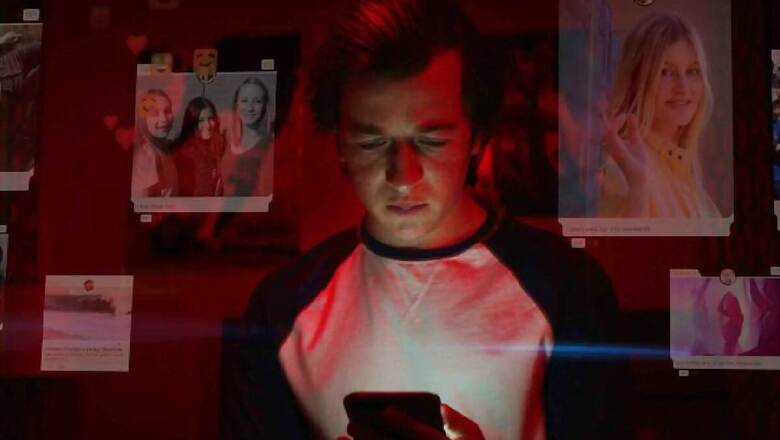
views
Remember in early September when The Social Dilemma released on Netflix? Remember the dread we felt while watching it? Remember how scared and angry we were when we realised that social media sites are taking advantage of us, selling our data promoting fake news and polarising the world towards an impending disaster? What happened after that?
While it made a lot of noise, ironically on social media, did it lead to any realistic changes? When we asked some of our readers, they said that while the documentary did scare them, their consumption habits did not change after watching the film.
Dr Anshu Kulkarni, Consultant Psychiatrist at Raheja-Fortis Hospital, Mumbai, addressed exactly why that happens. “The constant engaging in social media for long hours works through the same principle as any substance abuse. It is very true that people find it very hard to keep a check on their usage of social media, though they are quite aware of its harmful effects.
“It’s a corollary, like a person would know how alcohol is bad for them. I’m not drawing a complete corollary between social media and alcohol, but I’m just citing an example. Like how alcohol as a substance is bad for them, if consumed beyond proportion, but they keep chasing it. So it works on certain neurochemicals and they keep engaging in that activity,” she said.
Dr Kulkarni talks about the way we have been wired to use social media. “As a matter of fact most of the clients that come to me, have already Googled their symptoms. It has become a reflex mechanism because it is so readily available. It is so obvious that they will explore things online,” she said.
“There are harmful effects as well as benefits (of social media). But as we work in prevention, there is a need to always work towards how people can engage in social media carefully, and be cautious about the advertisements that we keep consuming on those sites. Because this can have effects largely on the vulnerable population.”
The documentary talks about how social media has caused a change in human behavior. A person who was habituated to brush their teeth first thing in the morning, now checks their phone. “As it has been highlighted in the documentary, it is very addicting. It is alarming to know that people would like to check their mails and social networking sites and then get up from their beds.
“It can bring about certain changes in the brain as well, which we call neuroplastic changes. That is highlighted well in this documentary and it is true as well. That is why I am saying that we need to highlight the harmful effects of social media, as well as the benefits,” Dr Kulkarni said.
Our dependence on social media also depends upon the large amount of benefits it has. Not only is social media helping the world connect during the pandemic, it is also helping people with mental health issues. “We have been able to engage with a lot of clients on teleconsults, either those who have been hesitant or are placed at a far-off locality, without access to mental health professionals.
“There are so many clients who I ask if they engage in writing their own journey of their issues, what they struggle with, and how they are able to gauge things now. So people can identify with them and it becomes like a peer support network they form on social media sites. It is helping people be less lonely. So we have to work through the habits the people already have, at the same time alarming them that this is what one must be aware of,” she explained.
The Social Dilemma created shockwaves across the world. Watching the same people who created these sites explain to us why they are harmful obviously had a severe effect on people. However, in Dr Kulkarni’s opinion, one cannot shock people into leaving behind an addiction. A continuous discussion is the only solution to this very addressable problem.
“We need to engage in these conversations on a regular basis and reiterate the effects of social media continuously. (A documentary like The Social Dilemma) can be a shocking phenomena, and while it can bring about major changes, a habit might linger on due to the neurochemicals the brain chases. So this needs to be spoken about time and again. We don’t tell our clients to not engage in social media but we talk to them about the healthy use of it. We need to do the same with the general masses as well. Otherwise it will just be a knee-jerk reaction,” she concluded.
















Comments
0 comment